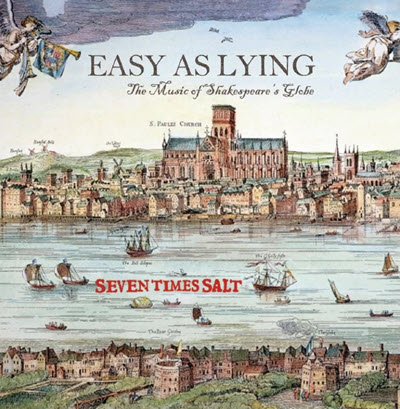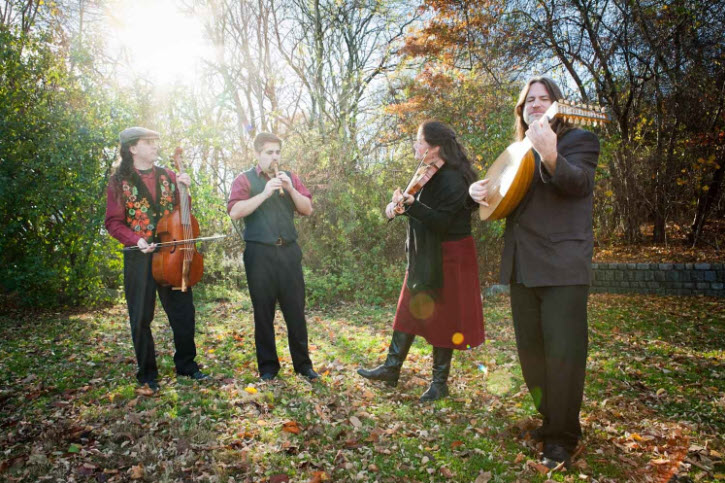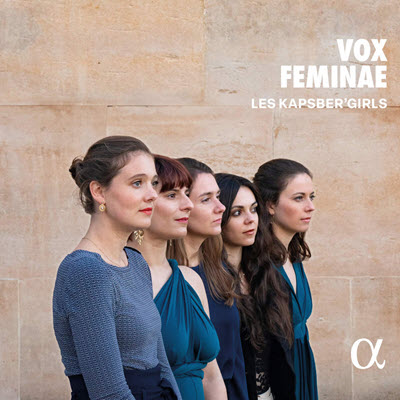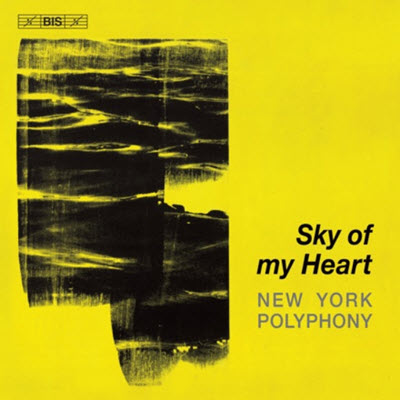by Anne E. Johnson
Published February 19, 2024
Easy As Lying: The Music of Shakespeare’s Globe. Seven Times Salt, with Barbara Allen Hill (soprano) and Michael Barrett (tenor, recorders). Self-released by Seven Times Salt, 2023.

The association of music and Shakespeare is a longtime fascination of the ensemble Seven Times Salt, whose new album, Easy As Lying, makes a compelling playlist out of what started as a commedia dell’arte-inspired stage show.
The Boston-based group first put the program together in 2014 as part of a celebration of Shakespeare’s 450th. They wrote a script — it included excerpts from plays — doing all the acting, singing, and playing themselves. This album version of the Easy As Lying program leaves out the spoken text, instead substituting extra songs.

As Seven Times Salt member Dan Mayer (baritone, recorder, flute, percussion) explains it in his booklet essay, “In some cases the appropriate musical connection to the play is clear; a song or tune is mentioned directly by Shakespeare during the course of a scene. In other cases, we’ve let a quote or an entire scene suggest repertoire ideas to us.” All the music is from Shakespeare’s own time.
The track list is arranged according to the plays. For example, “La Morte de la Ragione” (“The Death of Reason”) from the Fitzalan Partbooks (c.1520) is logically listed under Hamlet, as is John Dowland’s mighty “Flow My Teares,” sung with disarming simplicity by guest tenor Michael Barrett. Hamlet is clearly special to Seven Times Salt: Both the ensemble itself and this album take their names from that work.
It can take some puzzling to guess how each piece connects with the play it’s assigned to. Filippo Azzaiolo worked primarily in Bologna, although he did publish arrangements of some Venetian songs, which would explain the presence of his “Chi passa per ‘sta strada” under The Merchant of Venice. Then again, does it really matter? The two-voice arrangement for plucked strings (including Matthew Wright on bandora) and percussion is utterly charming. It’s a treat to get to hear the piece at all. The Shakespearean angle is just effective packaging.
Except for soprano Barbara Allen Hill, who is collaborating with the group, each performer on this recording both plays and sings. The instruments are as important and as well presented as the voices. Anthony Holborne’s “The Fairie-round” features a spritely group of recorders with continuo. Karen Burciaga contributes fine phrasing on the Baroque violin on “Gallaria d’Amore” (“Gallery of Love”) by Gasparo Zanetti, associated, not surprisingly, with Romeo and Juliet.

Although it’s fun to hear from so many different composers, the pastiche approach can get frustrating: While Josh Schreiber’s bass viol gives a gallant anchor to Thomas Morley’s “Galliard to the Quadro Pavin,” one does wonder whatever happened to the “pavin” (i.e., the pavane) that’s supposed to precede it.
The sound quality is bright and intimate, the work of producer Frances Conover Fitch and recording engineer Jake Subin, who knew how to capture the subtleties of the early instruments and make you feel like the singers are in the room with you. At any moment, the Bard himself might walk in!
Seven Times Salt plans to release a companion video to this CD later in 2024.
Anne E. Johnson is a freelance writer based in New York. Her arts journalism has appeared in the New York Times, Classical Voice North America, Chicago On the Aisle, and PS Audio’s Copper Magazine. She teaches music theory and ear training at the Irish Arts Center in Manhattan. For EMA, she recently wrote about Salamone Rossi’s ‘Songs of Solomon’ at 400.




